International
The US will recognize in Syria a government that comes out of a process without “external interference”
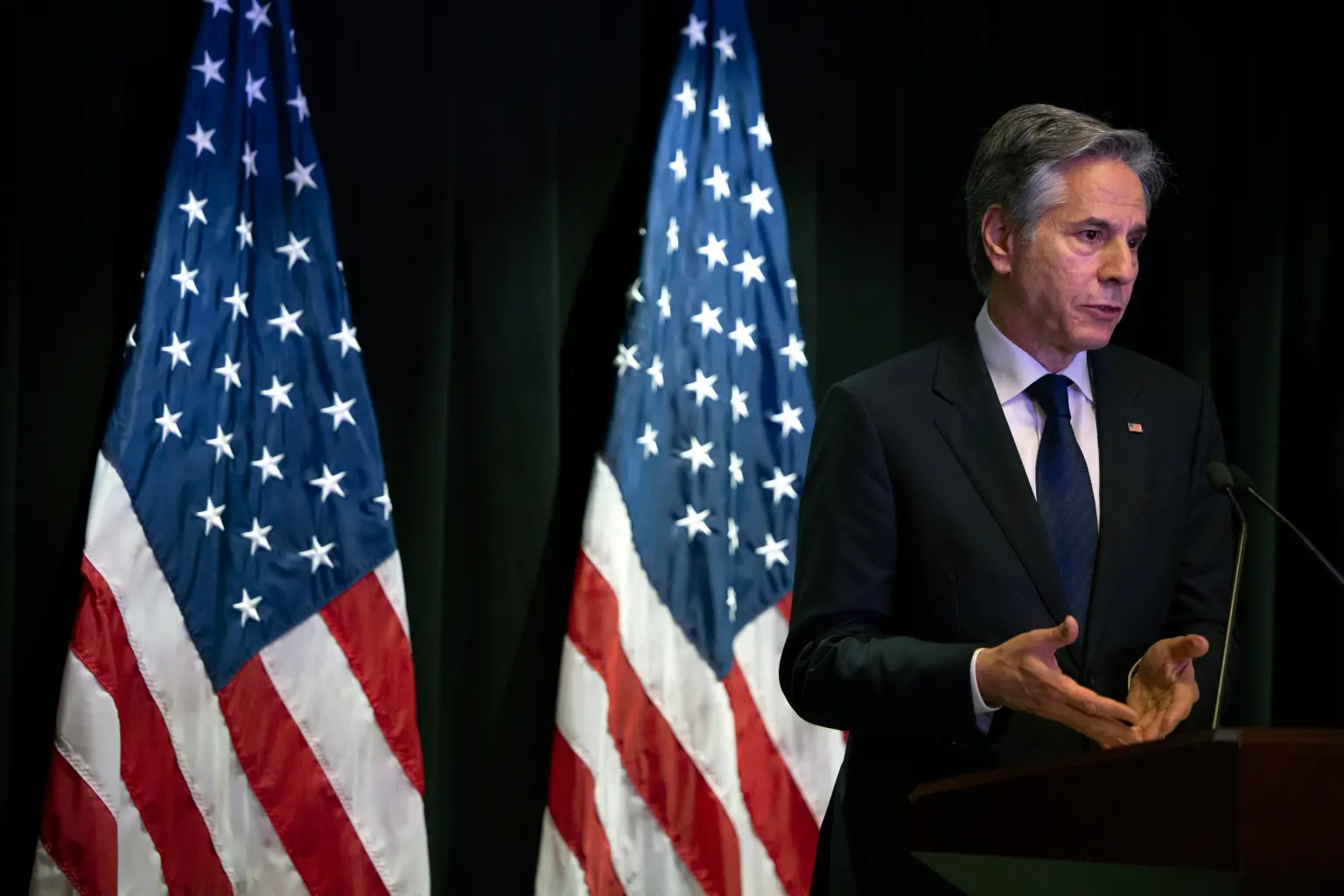
The United States will recognize and support a Syrian government that results from an inclusive transition process without external interference, US Secretary of State Antony Blinken announced on Tuesday.
“The Syrian people will decide the future of Syria. All nations must commit to supporting an inclusive and transparent process, and refrain from any external interference,” he said in a statement.
In addition, the head of US diplomacy added that his country “will fully recognize and support the future Syrian government that emerges from this process.”
“We are willing to provide all the necessary support to the various communities and sectors of the population of Syria,” stressed Blinken, who called for “credible, inclusive and non-sectarian governance that meets international standards.”
The US sees minority rights as key for the transition in Syria
The transition process and the new government, Blinken said, must respect the rights of minorities, facilitate the flow of humanitarian assistance, prevent Syria from becoming a base for terrorism and safely destroy chemical weapons.
Joe Biden’s Administration has celebrated the fall of Bashar Al Asad as a defeat for Iran and Russia, but fears that the struggle for power within the rebel ranks will fragment the country or that a void will be generated that will be exploited by the Islamic State, which in 2014 came to control vast areas of Syria and Iraq.
On Tuesday, rebel forces appointed Mohamed al Bashir, linked to the Islamist group Levante Liberation Agency (Hayat Tahrir al Sham or HTS, in Arabic), who led the offensive against Al Asad and which Washington considers a terrorist organization, as acting prime minister.
The United States is not considering lifting the sanctions on the HTS for now, but it is “watching” what the Islamist group does, White House National Security Council spokesman John Kirby said on Wednesday.
Likewise, Kirby said that the fall of the Al Asad government is an “opportunity” to gather more information about the whereabouts of Austin Tice, an American journalist kidnapped in 2012 while covering the Syrian war.
Prevent the conflict from escalating in Syria
The United States also expressed on Tuesday its rejection of any action that aggravates the conflict and hinders the transition in Syria, after Israel bombed several military facilities.
Asked at a press conference by the Israeli operative, State Department spokesman Matthew Miller said that the United States will discuss this matter “privately” with Israel before giving a public opinion.
“I would say that, in general terms, of course, we do not want to see any action that hinders the process led by Syria and, ultimately, we want there to be a peaceful process, not an escalation of the conflict,” he added.
The Israeli Army estimates that it has destroyed more than 70% of the military capabilities of the already overthrown Al-Assad regime in Syria after having attacked in recent days some 320 “strategic targets” from Damascus to Tartus.
Targets destroyed in the attacks include Syrian air defense systems, missile depots, drones, helicopters, fighter jets, tanks, radars and warships.
International
Colombia slams Ecuador’s 30% tariff as ‘economic aggression’
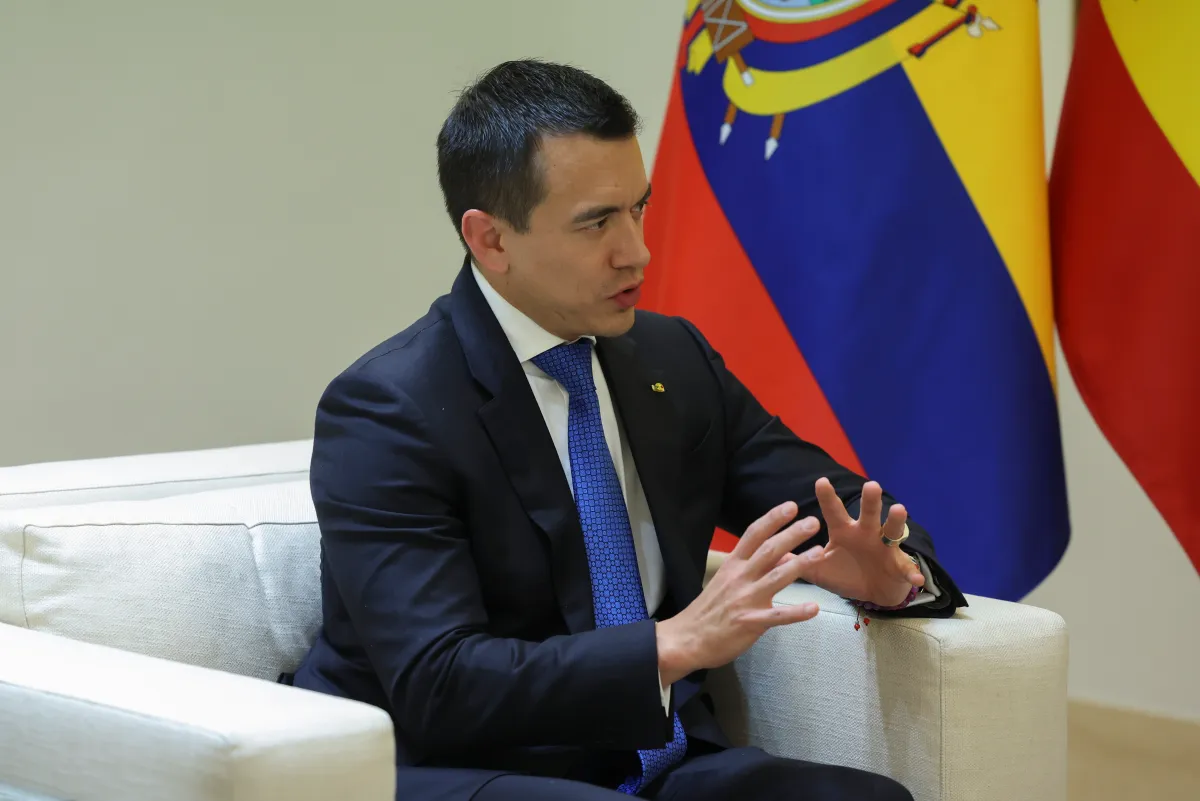
Colombia’s Minister of Mines and Energy, Edwin Palma, on Wednesday described as an “economic aggression” the 30% “security fee” imposed by Ecuadorian President Daniel Noboa on imports from Colombia.
“We reject the tariff measure imposed by Ecuador, an economic aggression that breaks the principle of regional integration,” Palma said in a post on X.
President Noboa explained that the decision was taken due to what he described as a “lack of reciprocity and firm actions” by Colombia in the fight against drug trafficking. He added that despite Ecuador having made “real efforts of cooperation,” including maintaining a trade deficit exceeding $1 billion annually, the country’s armed forces continue to face drug-linked criminal groups along the border without any cooperation.
For that reason, Noboa stated that the measure will remain in place “until there is a real commitment” from Colombia to jointly confront drug trafficking and illegal mining along the 586-kilometer shared border, with the same level of determination Ecuador is currently applying.
According to official data, Ecuador seized 214.5 metric tons of drugs in 2025, down from the record 294.6 tons confiscated in 2024.
Colombian President Gustavo Petro said on January 7 that during his administration, which began on August 7, 2022 and ends this year, drug seizures have increased significantly, adding that total confiscations are expected to exceed 3,500 tons by the time he leaves office.
International
José Jerí claims destabilization attempt after videos of secretive meetings surface
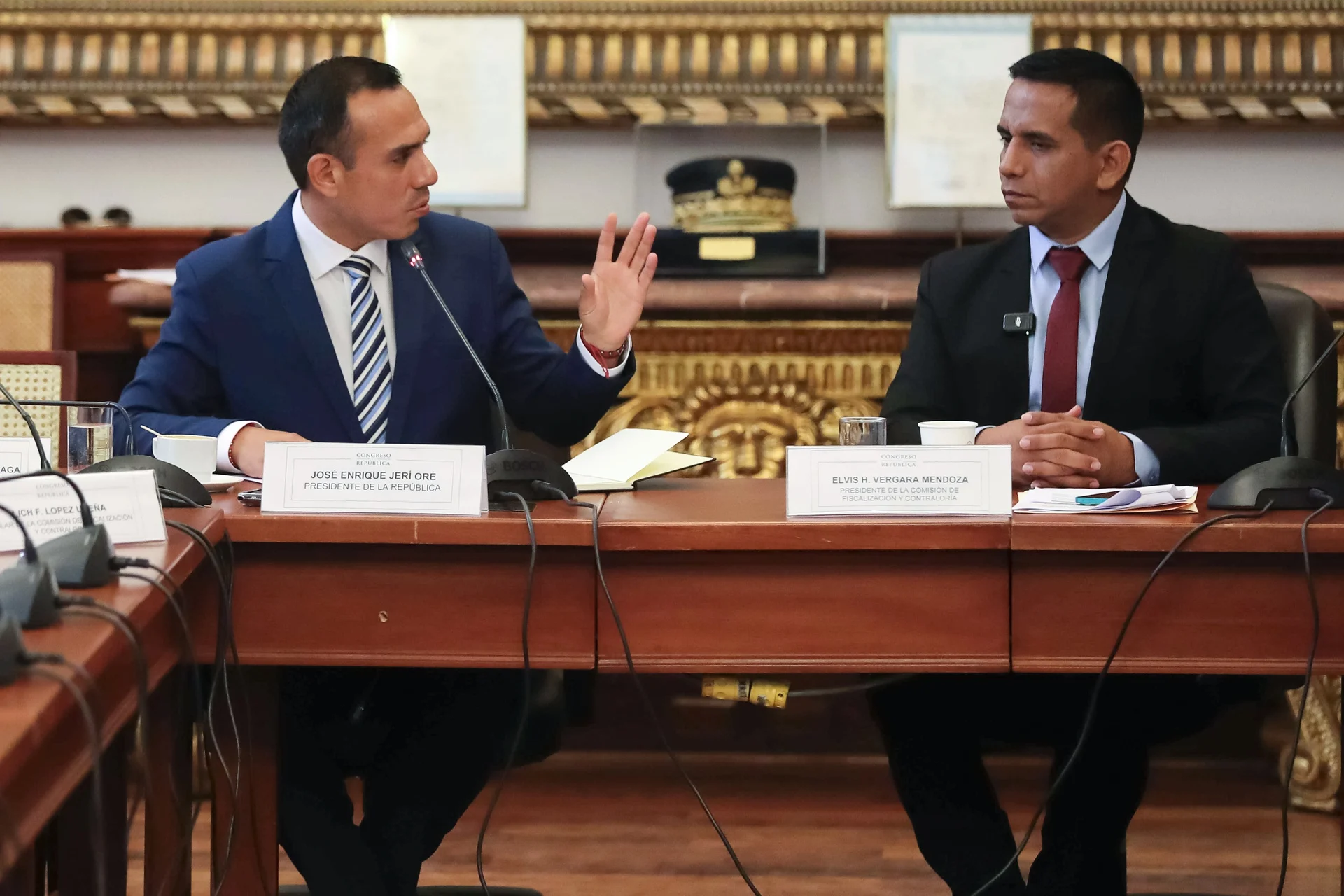
Peru’s interim president, right-wing leader José Jerí, on Wednesday denounced an alleged plot against him and warned of a deliberate attempt to destabilize the country, following the release of a series of videos showing semi-clandestine meetings with a Chinese businessman, as well as visits to the Government Palace by another businessman of the same nationality who is under house arrest.
“I also want to know who is behind this entire plot. I am an objective and impartial president who does not give in to pressure, but someone has found a way to do so. I want to know who is behind it and what their real objective is,” Jerí said while appearing before Congress’ Oversight and Comptroller Commission.
The interim president, who recently marked 100 days in office after replacing former president Dina Boluarte (2022–2025) in his role as head of Congress, insisted that he has never lied to the country. Without directly accusing any individual or group, he argued that routine activities—such as visiting a restaurant or a shop—are being portrayed with a “malicious” intent.
So far, reports indicate that on December 26, close to midnight, Jerí visited a chifa restaurant—a Peruvian-Chinese eatery—owned by Chinese businessman and state contractor Zhihua “Johnny” Yang, accompanied by Interior Minister Vicente Tiburcio, and wearing a hood. On January 6, he also visited a shop belonging to the same businessman, which had been shut down by municipal authorities just hours earlier.
The revelations have fueled political controversy and renewed scrutiny of the interim administration’s actions amid Peru’s ongoing political instability.
International
Mexican influencer “La Nicholette” kidnapped in exclusive area of Culiacán
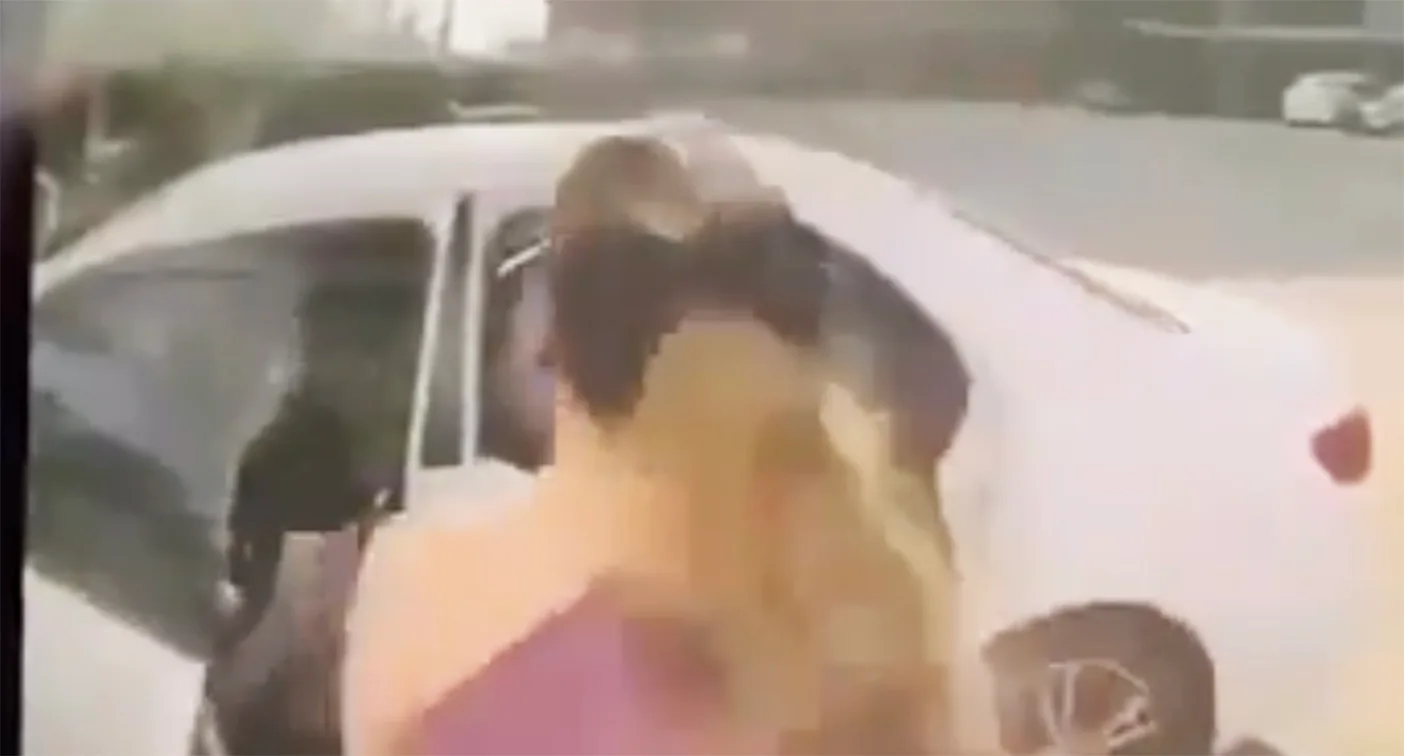
The content creator known as “La Nicholette,” also referred to as “La Muchacha del Salado,” was kidnapped Tuesday afternoon in Isla Musalá, one of the most exclusive residential areas of Culiacán, capital of the northern Mexican state of Sinaloa, according to local media reports on Wednesday.
The abduction was captured by the security camera of the young woman’s vehicle, a lilac-colored Tesla Cybertruck, which was later found abandoned at the scene.
Video footage circulating on social media shows a masked man carrying a long firearm preventing the influencer from entering her vehicle, while another individual forces her into a white sedan, reportedly an older-model Toyota Corolla.
According to media reports, the incident occurred at approximately 5:00 p.m. local time (2300 GMT) at the intersection of Tachichilte Avenue and San Esteban Street, within the Musalá residential area.
Authorities have not yet released official details regarding the victim’s whereabouts or the motives behind the kidnapping.
-

 International2 days ago
International2 days agoDeath toll from southern Spain train crash rises to 40
-

 International5 days ago
International5 days agoU.S. deportation flight returns venezuelans to Caracas after Maduro’s ouster
-

 Central America2 days ago
Central America2 days agoGuatemala raises police death toll to nine after gang violence escalates
-

 Central America3 days ago
Central America3 days agoGuatemala prison uprisings leave 46 guards held by gangs
-

 International2 days ago
International2 days agoOver 160 christian worshippers kidnapped in Kaduna Church attacks
-
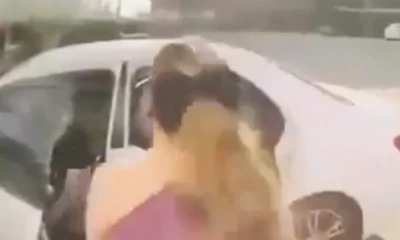
 International6 hours ago
International6 hours agoMexican influencer “La Nicholette” kidnapped in exclusive area of Culiacán
-

 International1 day ago
International1 day agoDaily Mail publisher insists reports relied on legitimate sources amid privacy trial
-

 International3 days ago
International3 days agoChile declares state of catastrophe as wildfires rage in Ñuble and Biobío
-

 International1 day ago
International1 day agoGermany says football bodies alone will decide on possible World Cup boycott
-

 International5 days ago
International5 days agoFormer South Korean President Yoon sentenced to five years in prison
-

 International2 days ago
International2 days agoSpain’s Prime Minister pledges transparency after train crash kills at least 39
-

 International6 hours ago
International6 hours agoTrump announces preliminary NATO agreement on Greenland, suspends tariffs on Europe
-

 International6 hours ago
International6 hours agoMajor winter storm to blanket U.S. and Canada with snow, ice and arctic cold
-
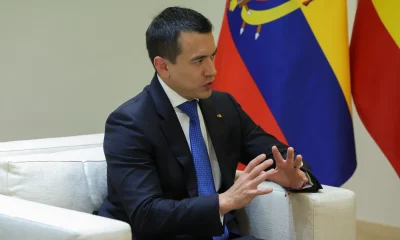
 International5 hours ago
International5 hours agoColombia slams Ecuador’s 30% tariff as ‘economic aggression’
-
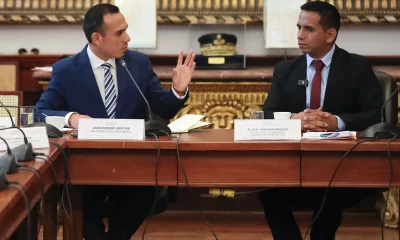
 International5 hours ago
International5 hours agoJosé Jerí claims destabilization attempt after videos of secretive meetings surface


























